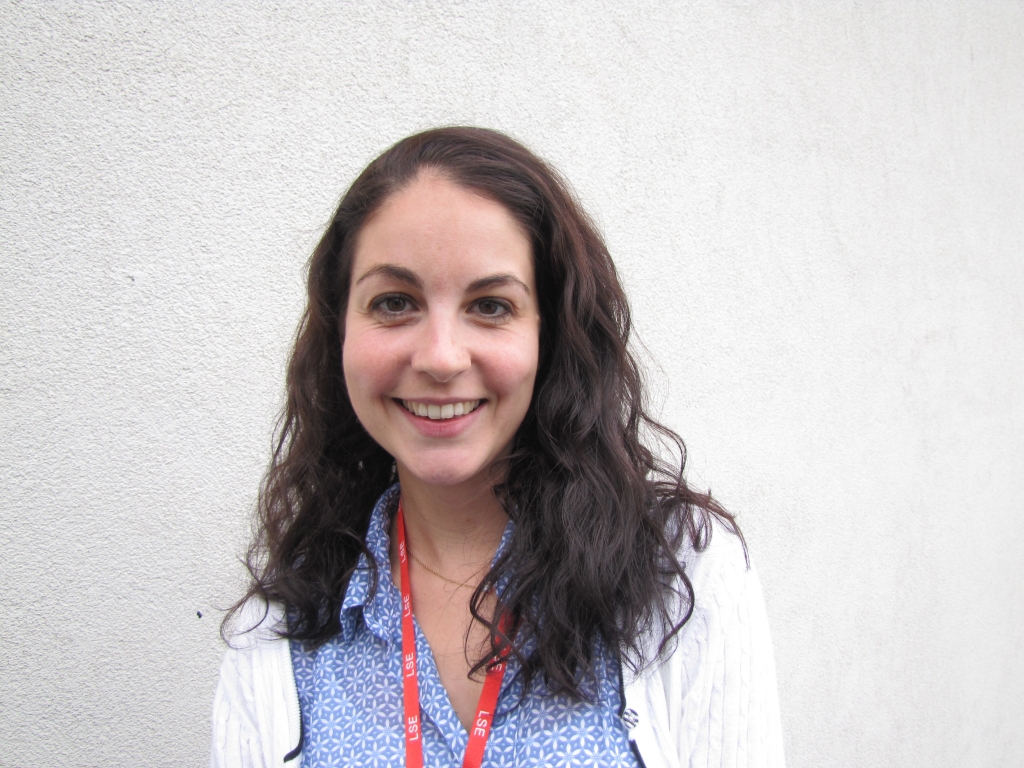Recent graduate and newly appointed Student Experience Officer, Sarah Neuenschwander, gives her top 5 tips to new students on saving a few pounds… and time!

When I arrived in London in mid-September last year, I was looking forward to a few days of exploring the city. Well, I underestimated the time it takes to deal with the dull administrative stuff before starting the year at the LSE. So instead of spending my afternoons in museums and pubs, I was filling out forms, making comparisons of bank accounts and paying several visits to the Student Services Centre. Here’s some tips that may help you get through these things easier:
Moving in
If you haven’t been moving around a lot, there are certain things you should be aware of when you move into a new place. Most of my friends at the LSE lived in student halls, where you usually receive an inventory list upon arrival. I cannot stress enough that you should really take the time to carefully check the inventory in your room and note down anything that is dirty and/or broken. It is also helpful to take pictures of the room and furniture and save them until next year, so that you can prove that you’re not responsible for any damage that has been created by the previous tenant. Landlords in London and some of the student hall providers can be a real pain to deal with, especially when it comes to getting your deposit back when you move out.
If you need to buy things for your new home such as bedding or kitchen utensils, check out alternatives to IKEA or Argos. For instance, if you’re going to live in a student hall, join the Facebook group of this year’s and last year’s cohort of students of your hall – students moving out usually sell quite useful things for a bargain!
Money, money, money (it’s sadly a rich man’s world)
If you want to sign certain contracts, such as a mobile phone contract, you will need to have a British debit card. So before going to a phone store, make sure you open a student bank account first. In order to do that, you need to make an appointment at a bank. Many banks are pretty busy around this time of the year, so it can take several days to get an appointment. Since I didn’t want to wait this long, I chose the Santander branch on the LSE campus, where I was able to instantly fill out the required forms (click here to find out more about which documents you’ll have to bring with you). Having my bank account with a bank on campus turned out to be very useful, and the staff there has always been quite helpful.
If you’re overcome by wanderlust
If you don’t live within walking distance from the LSE campus, or if you’re planning on travelling around London or the UK during your year here, it’s a good idea to get a student Oyster card as well as a 16-25 railcard. As with most other admin stuff, it usually takes a while to get your student Oyster card (I received mine after about two weeks), so make sure you apply for one online as soon as you are registered at the LSE. If you’re 25 or under, you’ll also be able to purchase a 16-25 railcard for £30, which gives you a 1/3 discount on train tickets during one year. For those who are over 25, you will need to prove that you are enrolled as a full-time student at a UK university by having the Student Services Centre stamp and sign the Mature Student Application Form. When you get your railcard, ask a member of staff at a tube station to register your railcard on your student Oyster card at a vending machine (for some reason you cannot do this on your own). It will give you additional discounts on off-peak pay as you go fares – that’s money saved that you’ll be able to use for a lot more fun stuff in London!
It’s all about discounts!
Student life is certainly not the least expensive in London. However, there are many places that offer student discounts, such as The Espresso Room (if you like strong coffee, you’ll love it!), or the Fields Bar & Kitchen in the centre of Lincoln’s Inn Fields. I also made use of student discounts to go to the Royal Opera House and watch some world-class performances. In addition, it is advisable to buy a TOTUM card, which gives you discounts on things like restaurants, supermarkets or stores for uni essentials.
In case you get ill
If you’re eligible for free treatment on the NHS, you have to register with a local GP that lies within your postcode area (to find out whether you are eligible, click here). Do this as soon as possible, as you cannot make an appointment with a GP without being registered there (believe me, I speak from experience). Be prepared to fill out loads of paperwork, either directly at the GP’s practice or by downloading the required form online. If you become ill before having registered, you can go to a private GP, which however won’t be free.
The first few weeks at the LSE can be a bit crazy, and you’ll be pretty busy with things like course selection, meeting your academic mentor, or simply finding your way around London. If you arrive in London early, try to already tick off some of the items on the to do list – it’ll make your life in the upcoming weeks easier!
Sarah Neuenschwander has just finished her MSc in International Political Economy at the London School of Economics and Political Science. She is now working as a Student Experience Officer at the International Development Department.
The views expressed in this post are those of the author and in no way reflect those of the International Development LSE blog or the London School of Economics and Political Science.





